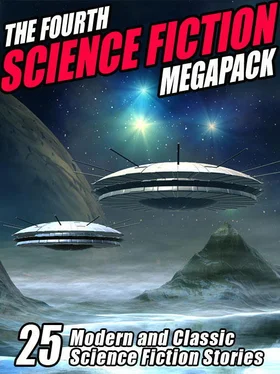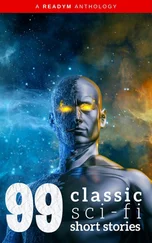We have not talked very much today. in the afternoon she flew out for an hour’s play in the cloud country; when she returned she let me know that she needed a long sleep. She is still sleeping, I think; I am writing this downstairs, fearing the light might disturb her.
Is it possible I can have thirty or forty years in her company? I wonder how teachable my mind still is. I seem to be able to assimilate new facts as well as I ever could; this ungainly carcass should be durable, with reasonable care. Of course, facts without a synthetic imagination are no better than scattered bricks; but perhaps my imagination—
I don’t know.
Judy wants out. I shall turn in when she comes back. I wonder if poor Judy’s life could be—the word is certainly “saved.” I must ask.
* * * *
June 10
Last night when I stopped writing I did go to bed but I was restless, refusing sleep. At some time in the small hours—there was light from a single room—she flew over to me. The tensions dissolved like an illness, and my mind was able to respond with a certain calm.
I made plain (what I am sure she already knew) that I would never willingly part company with her, and then she gave me to understand that there are two alternatives for the remainder of my life. The choice, she says, is altogether mine, and I must take time to be sure of my decision.
I can live out my natural span, whatever it proves to be, and she will not leave me for long at any time. She will be there to counsel, teach, help me in anything good I care to undertake. She says she would enjoy this; for some reason she is, as we’d say in our language, fond of me. We’d have fun.
Lord, the books I could write! I fumble for words now, in the usual human way: whatever I put on paper is a miserable fraction of the potential; the words themselves are rarely the right ones. But under her guidance—
I could take a fair part in shaking the world. With words alone. I could preach to my own people. Before long, I would be heard.
I could study and explore. What small nibblings we have made at the sum of available knowledge! Suppose I brought in one leaf from outdoors, or one common little bug—in a few hours of studying it with her I’d know more of my own specialty than a flood of the best textbooks could tell me.
She has also let me know that when she and those who came with her have learned a little more about the human picture, it should be possible to improve my health greatly, and probably my life expectancy. I don’t imagine my back could ever straighten, but she thinks the pain might be cleared away, possibly without drugs. I could have a clearer mind, in a body that would neither fail nor torment me.
Then there is the other alternative.
It seems they have developed a technique by means of which any unresisting living subject whose brain is capable of memory at all can experience a total recall. It is a byproduct, I understand, of their silent speech, and a very recent one. They have practiced it for only a few thousand years, and since their own understanding of the phenomenon is very incomplete, they classify it among their experimental techniques. In a general way, it may somewhat resemble that reliving of the past that psychoanalysis can sometimes bring about in a limited way for therapeutic purposes; but you must imagine that sort of thing tremendously magnified and clarified, capable of including every detail that has ever registered on the subject’s brain; and the end result is very different. The purpose is not therapeutic, as we would understand it: quite the opposite. The end result is death. Whatever is recalled by this process is transmitted to the receiving mind, which can retain it and record any or all of it if such a record is desired; but to the subject who recalls it, it is a flowing away, without return. Thus it is not a true “remembering” but a giving. The mind is swept clear, naked of all its past, and, along with memory, life withdraws also. Very quietly. At the end, I suppose it must be like standing without resistance in the engulfment of a flood time, until finally the waters close over.
That, it seems, is how Camilla’s life was “saved.” Now, when I finally grasped that, I laughed, and the angel of course caught my joke. I was thinking about my neighbor Steele, who boarded the old lady for me in his henhouse for a couple of winters. Somewhere safe in the angelic records there must be a hen’s-eye image of the patch in the seat of Steele’s pants. Well—good. And, naturally, Camilla’s view of me, too: not too unkind, I hope—she couldn’t help the expression on her rigid little face, and I don’t believe it ever meant anything.
At the other end of the scale is the saved life of, my angel’s father. Recall can be a long process, she says, depending on the intricacy and richness of the mind recalling; and in all but the last stages it can be halted at will. Her father’s recall was begun when they were still far out in space and he knew that he could not long survive the journey. When that journey ended, the recall had progressed so far that very little actual memory remained to him of his life on that other planet. He had what must be called a “deductive memory”; from the material of the years not yet given away, he could reconstruct what must have been; and I assume the other adult who survived the passage must have been able to shelter him from errors that loss of memory might involve. This, I infer, is why he could not show me a two-moon night. I forgot to ask her whether the images he did send me were from actual or deductive memory. Deductive, I think, for there was a certain dimness about them not present when my angel gives me a picture of something seen with her own eyes.
Jade-green eyes, by the way—were you wondering?
In the same fashion, my own life could be saved. Every aspect of existence that I ever touched, that ever touched me, could be transmitted to some perfect record. The nature of the written record is beyond me, but I have no doubt of its relative perfection. Nothing important, good or bad, would be lost. And they need a knowledge of humanity, if they are to carry out whatever it is they have in mind.
It would be difficult, she tells me, and sometimes painful. Most of the effort would be hers, but some of it would have to be mine. In her period of infantile education, she elected what we should call zoology as her lifework; for that reason she was given intensive theoretical training in this technique. Right now, I guess she knows more than anyone else on this planet not only about what makes a hen tick but about how it feels to be a hen. Though a beginner, she is in all essentials already an expert. She can help me, she thinks (if I choose this alternative)—at any rate, ease me over the toughest spots, soothe away resistance, keep my courage from too much flagging.
For it seems that this process of recall is painful to an advanced intellect (she, without condescension, calls us very advanced) because, while all pretense and self-delusion are stripped away, there remains conscience, still functioning by whatever standards of good and bad the individual has developed in his lifetime. Our present knowledge of our own motives is such a pathetically small beginning!—hardly stronger than an infant’s first effort to focus his eyes. I am merely wondering how much of my life (if I choose this way) will seem to me altogether hideous. Certainly plenty of the “good deeds” that I still cherish in memory like so many well-behaved cherubs will turn up with the leering aspect of greed or petty vanity or worse.
Not that I am a bad man, in any reasonable sense of the term; not a bit of it. I respect myself; no occasion to grovel and beat my chest; I’m not ashamed to stand comparison with any other fair sample of the species. But there you are: I am human, and under the aspect of eternity so far, plus this afternoon’s newspaper, that is a rather serious thing.
Читать дальше












